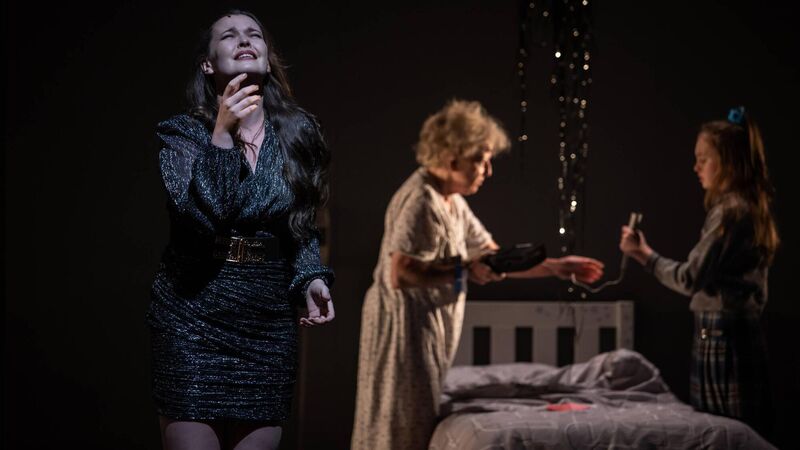Theatre review: The First Child is dark, strange and hugely enjoyable

Sarah Shine, Joan Sheehy and Caia Leseure in The First Child. Picture: Ste Murray
★★★★☆
In 2015, Donnacha Dennehy and Enda Walsh gave us the first part of this accidental trilogy: The Last Hotel. That opera was based on the true story of a woman’s assisted suicide, but, as you’d expect from Walsh, was transformed into something mythic, which took in the absurdity and banality of modern life, combined with an eerie otherwordliness.




